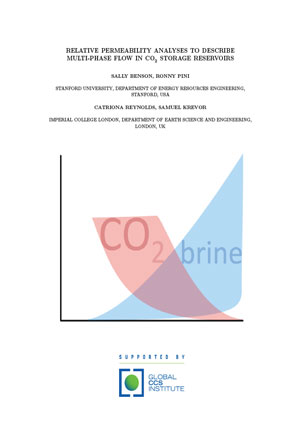Publications
Relative permeability analysis to describe multi-phase flow in CO2 storage reservoirs
7th August 2013
Topic(s): Carbon capture use and storage (CCUS), CO2 storage
The purpose of this report is to provide an explanation of the different methods used to measure relative permeability and to provide an objective review of comparable methodologies. The report will also include the identification of data gaps and the requirements to obtain additional material to provide a complete library of relative permeability measurements in varying brine compositions and rock types to represent as complete a suite of potential storage sites as possible.
Disclaimer
The content within the Global CCS Institute Publications, Reports and Research Library is provided for information purposes only. We make every effort and take reasonable care to keep the content of this section up-to-date and error-free. However, we make no claim as to its accuracy, currency or reliability.
Content and material featured within this section of our website includes reports and research published by third parties. The content and material may include opinions and recommendations of third parties that do not reflect those held by the Global CCS Institute.
